Cognition, Société et Langage
"Cognition, Société et Langage" est dédié à la recherche empirique en linguistique. Cette recherche adopte une perspective fonctionnelle sur le langage et met l’accent sur la phonétique expérimentale et la construction du sens dans la pratique langagière. L’aspect socio-culturel de la langue et ses effets sur la variation inter- et intra- linguistique sont particulièrement importants dans notre recherche.
Phonétique expérimentale - segmentale et suprasegmentale
Les études sur les aspects sonores du langage effectuées au sein de cet axe portent particulièrement sur la parole atypique (disfluences ; interlangues chez les apprenants des langues étrangères /secondes) ainsi que les dimensions sociales de la parole (genre et langues ; discours et prosodie).
Construction et Sens - la structure holistique et multimodale
La structure langagière est traitée d’une perspective fonctionnelle-cognitive comme un phénomène holistique (non-monulaire), émergente de l’usage et fondamentalement multimodale par nature. Cet axe de recherche s’intéresse surtout au discours, aux constructions grammaticales, à la gesture, à la variation sociale et à la modélisation quantitative des analyses qualitatives en linguistique.
Faculty
Dylan Glynn
Cognitive Linguistics, sociolinguistics, corpus linguistics, multivariate statistics
Daniel Henkel
Corpus linguistics, translation studies
Marie-Pièrre Jouannaud
Second language acquisition, listening comprehension, foreign language assessment
Takeki Kamiyama
Acquisition et apprentissage phonétiques des langues étrangères, phonétique générale
Mégane Lesuisse
keywords coming.
Lilli Parrott
Syntaxe anglaise et variétés de langue
Erwan Pépiot
Phonétique expérimentale, phonétique comparée de l’anglais et du français
Sabina Tabacaru
Cognitive Linguistics, discourse analysis, multimodality, humor, gesture
Emeriti
|
Jean-Yves Dommergues |
Bernard Lafite |
Doctorandi
|
Layla AIT ISHA |
Anissa BERRACHECHE |
|
Avgustina BIRYUKOVA |
Marie CHANTRE |
|
Alienor Jeandidier |
Mai KUMAMOTO |
|
Lalou RIVAL |
Olaf MIKKELSEN |
|
Piotr WYROSLAK |
Mirela Imamovic |
|
Iuliia Troitskaia |
Tobias Stockler |
|
Isabel Jiménez Sáez |
Research Assistants
|
Amina Maghraoui |
Aliya Gimadieva |
|
Racha Rahal Gharbi |
Jing BAI |
Associated Members
|
Alena anishchanka |
Malina Ditcheva |
|
Guillaume Desagulier |
Roussi Nikolov |
|
Alena Soloshenko |
Oxana Kharlamenko |
Former Members
|
Mireille Prodeau |
Françoise Doro-Mégy |
|
Yves-Bernard Malinier |
Anne Tortel |
|
Nadine Herry-Bénit |
Alena Belanovich |
|
Élise Ryst |
Farzaneh Deravi |
|
Isabel Tejada Sanchez |
Amira AROUS |
|
Meriem GUECHE |
Irina MATUSEVICH* |
|
Na YANG |
Chedi Ben Youssef |
|
Bassirou Kante |
Gioia FRANCHI |
|
Benoît Leclercq |
Ivana Didirková |
Dylan GLYNN
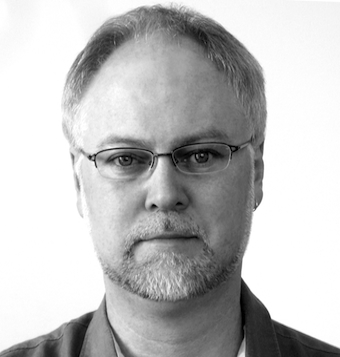
My main interest lies in explaining the inter-dependent structuring of the langauge system. The main of my research focuses on developing empirical usage-based methods for Cognitive and Functional Linguistics. I am especially interesting in semantics, lexical, morphological and contructional and the interaction between the three. I work on Germanic and Slavic languages.
- Glynn, D. & Fischer, K. 2010. <a name=’Quantitative Cognitive Semantics. Corpus-driven approaches. Berlin : Mouton de Gruyter.
- Glynn, D. & Robinson, J. 2014. Corpus Methods in Cognitive Semantics. Studies in polysemy and synonymy. Amsterdam : John Benjamins.
- Glynn, D. & Sjölin, M. 2016. Subjectivity and Epistemicity. Stance strategies in discourse and narration. Lund : Lund University Press.
Takeki KAMIYAMA
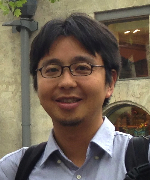
email : takeki.kamiyama [at] univ-paris8.fr
Research
My main research area is experimental phonetics and the acquisition and teaching of segmental (vowels and consonants) and prosodic aspects of foreign and second languages (English, French, Japanese, …). My doctoral dissertation dealt with the acquisition of French vowels by Japanese-speaking learners. I currently participate in projects related also to the phonetic/phonological acquisition of English as a foreign language : IceIPAC (Interphonology of Contemporary English), PARI-primaire (acquisition of English in French primary schools), SITAF (Spécificités des Interactions verbales dans le cadre de Tandems Anglais-Français).
- Kamiyama, T. 2012. Production des voyelles du français par des apprenants japonophones : effet du dialecte d’origine. Proceedings of the XXIXèmes Journées d’Étude sur la Parole. (Grenoble, France, 4-8 juin 2012), 771–778.
- Kamiyama T., Kühnert B. & Vaissière J. 2011. Do French-speaking learners simply omit the English /h/ ? Proceedings of the 17th International Congress of Phonetic Sciences, 1010-1013.
- Kamiyama, T. & Vaissière, J. 2009. Perception and production of French close and close-mid rounded vowels by Japanese-speaking learners. J.-Y. Dommergues (ed), Aile... Lia 2 : 9-41.
<a name=<-]
Lilli PARROTT
Research
- Parrott, L. 2012. Changements de voix : un aperçu historique sur la terminologie linguistique. Demi-journée sur la voix. May 4, 2012, Paris.
- Parrott, L. 2011. How to tell a he from a she : the use of gendered pronouns with non-personal referents in English. Etats critiques et Transitions disciplinaires. November 18-19, 2011, Paris.
- Parrott, L. 2010. Vocatives and other direct-address forms : a contrastive study". A. Grønn & I. Marijanovi ? (eds), Russian in Contrast. Grammar. Oslo Studies in Language 2 : 211-229.
Erwan PÉPIOT

Research
My research area is experimental phonetics. I am mainly interested in acoustic differences between female and male speech in American English and French speakers and in the way listeners can identify a speaker’s gender from his or her voice. So far, my findings support the idea that cross-gender acoustic differences are partly language-dependent and therefore, socially constructed. A next step will be to investigate bilingual speakers’ behaviour from this perspective.
I am also involved in a research project about the acoustic aspects of the syllable and syllabification preferences in in English L1 / French L2 and French L1 / English L2 bilingual speakers.
- Pépiot, E. 2014. Male and female speech : a study of mean f0, f0 range, phonation type and speech rate in Parisian French and American English speakers. Proceedings of the 7th International Conference on Speech Prosody - Dublin, 305-309.
- Pépiot, E. 2013. "Processing male and female voices : a word spotting experiment". Perceptual and Motor Skills, 117(3), 903-912.
- Pépiot, E. 2011. Voix de femmes, voix d’hommes : à propos de l’identification du genre par la voix chez des auditeurs anglophones et francophones. Plovdiv University “Paissii Hilendarski”, Scientific Works – Philology, Vol. 49, Book 1, 418-430.
Sabina TABACARU
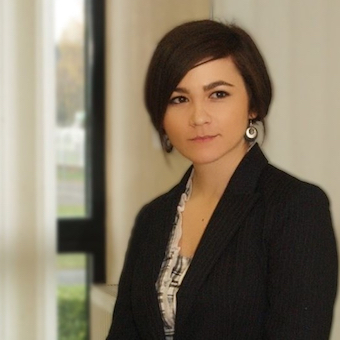
Research
My main area of research is multimodal discourse analysis, within a Cognitive Linguistics theoretical framework. I particularly focus on sarcasm in interaction and the use of non-verbal elements, such as facial expressions, in the process of meaning construction. My projects include extending the interpretation of these facial expressions (called “gestural triggers” with the use of sarcasm) to other languages and to other communication modes (such as emoji use in different languages).
- Tabacaru, S. 2019. A Multimodal Study of Sarcasm in Interactional Humor. Mouton de Gruyter.
- Tabacaru, S. & Feyaerts, K. 2016. The power of metonymy in humor : stretching contiguous relations across different layers of meaning. The European Journal of Humor Research 4 : 1-18.
- Tabacaru, S. & Lemmens, M. 2014. Raised eyebrows as gestural triggers in humor : The case of sarcasm and hyper-understanding. The European Journal of Humor Research 2 : 11-31.
Ivana DIDIRKOVÁ

Research
My main research interests include clinical and experimental phonetics, as well as the prosody-discourse interface. Since the completion of my doctoral thesis, I have mainly been working on stuttering and its consequences on speech and in spoken language, with a focus on all levels of speech production. I currently participate in projects related to the speech production in different speech disorders. My research interests also extend to the importance of prosody in transmitting discourse structure and discourse information in non-pathological and pathological speech.
- Didirková I., Crible L., Simon A.-C. 2018. Impact of Prosody on the Perception and Interpretation of Discourse Relations : Studies on “Et” and “Alors” in Spoken French. Discourse Processes 45.
- Didirková I., Le Maguer S., Hirsch F. 2018. Quand la pause devient-elle un symptôme du bégaiement ? Une étude acoustique et articulatoire, In Hirsch F. & Dodane C. (eds) : L’organisation spatiale et temporelle de la pause en parole et en discours, Langages 211 : 127-141.
- Barkat-Defradas M., Fauth C., Didirková I., Amy de la Bretèque B., Hirsch F., Dodane C., Sauvage J. 2015. Dysphonia is beautiful : A perceptual and acoustic analysis of vocal roughness, Proceedings of the 18th International Congress of Phonetic Sciences, Glasgow.
Marie-Pièrre Jouannaud
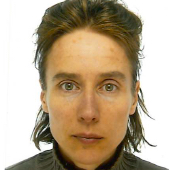
Research
I specialize in Second Language Acquisition, specifically the acquisition of English as a foreign language. I am interested in establishing a link between the study of foreign language acquisition processes (especially in listening) and language teaching and assessment methods. I am also interested in the development of digital ressources for language teaching, from elementary to university level.
- Jouannaud, M.-P., & Hilton, H. To appear. Représentation phonologique des mots en langue étrangère. Les Langues Modernes.
-
Jouannaud, M.-P., Thévenon, M., Biros, C., & Fries, M.-H. 2018. Benchmarking comprehension exams on the CEFR a posteriori ? : An exploratory experiment. ASp. La Revue Du GERAS 74 : 163 ?172.
-
Cervini, C., & Jouannaud, M.-P. 2015. Ouvertures et tensions liées à la conception d’un système d’évaluation en langues, numérique, multilingue et en ligne, dans une perspective communicative et actionnelle. ALSIC 18 : no pp.
Amira AROUS
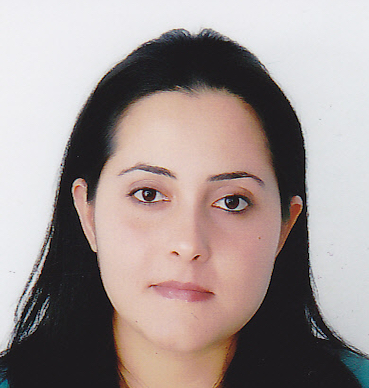
Doctoral Candidate
email : amiraarous [at] gmail.com
URL :
Keywords
Gesture Studies, discourse analysis
This study contrasts spontaneous co-speech gestures in two different contexts : free interaction and staged performance. My hypothesis is that interlocutors use more sipmlified gestures to express stance in the staged context than in the spontaneous setting. The database consists in a corpus of distinct sets of co-speech gestures. The aim is to analyse the co-occurrences of stance-bearing lexical anchors with visual stance markers. A semasiological approach is adapted for this purpose.
- Arous, A. 2016. Intersubjectivity in Editorial Cartoons : A Multimodal Corpus-driven Study. 10th International Conference of the Spanish Cognitive Linguistics Association, Madrid, Spain.
- Arous, A. 2018. A contrastive analysis of gesture in spontaneous and staged human interactions : Tunisian gestures as a case study. 3rd nternational Association for Cognitive Semiotics, Toronto, Canada.
Anissa BERRACHECHE
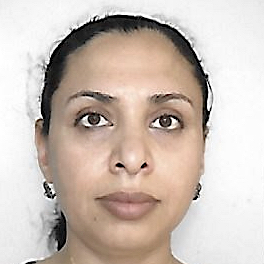
Doctoral Candidate
email : aberracheche [at] gmail.com
URL :
Keywords
Critical Discourse Analysis, Systemic Functional Linguistics
This study employs a combination of both quantitative and qualitative methods of linguistic analysis to improve tools used to identify discursive construal (also called discourse construction) in critical discourse analysis (CDA). The case study is based on news editorials texts published between January and December 2016 in eight newspapers (Aujourd’hui en France, Le Figaro, Le Monde, Libération, The Daily Mail, The Daily Mirror, The Daily Telegraph, and The Guardian).
- Berracheche, A. 2020. Appraisal and Party Positioning in Parliamentary Debates : A Usage-Based Critical Discourse Analysis. International Journal of English Linguistics 10 : 322-334.
- Berracheche, A. 2016. Implicit Attitude in Political Discourse. Applying Cognitive Linguistics methods to Critical Discourse Analysis. 7th German Cognitive Linguistics Conference, October, Essen, Germany.
- Berracheche, A. 2018. Construing asylum. A case study of metaphoric use in English and French media discourse. 4th International Conference onFigurative Thought and Language, October, Braga, Portugal.
Lalou RIVAL
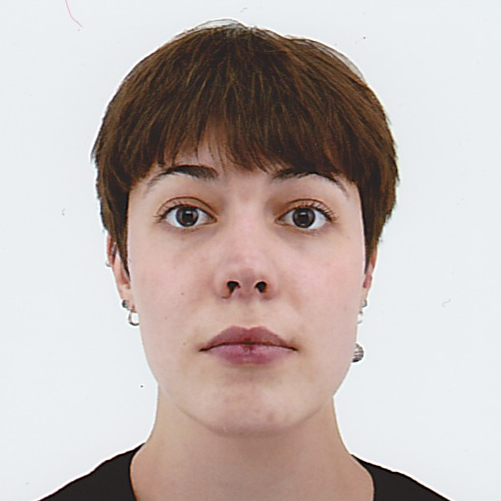
Doctoral Candidate
email : lalou.rival [at] orange.fr
URL :
Keywords
Critical Discourse Analysis, Systemic Functional Linguistics, Gender Studies
Après une bi-licence Histoire-Anglais effectuée à Paris 4, j’ai complété un Master en Linguistique Anglaise à Paris Diderot et à l’Université de Chicago et ai concentré mes recherches en analyse du discours et études de genre, avec un mémoire analysant l’attribution linguistique de responsabilité dans trois cas de procès pour viol aux Etats-Unis. Désormais doctorante à Paris 8, mes recherches se concentrent en analyse critique du discours et Linguistique Systémique Fonctionelle. J’effectue actuellement une comparaison linguistique et rhétorique entre discours masculinistes et discours féministes exclusionaires sur la plateforme de réseau social Twitter.
- Rival, L. 2023. The role of polysemy of English negation in the linguistically restrictive environment of the courtroom : A case study of the construal of responsibility in three Chicago rape trials. 16th International Cognitive Linguistics Conference, 7-11 August 2023, Düsseldorf, Germany.
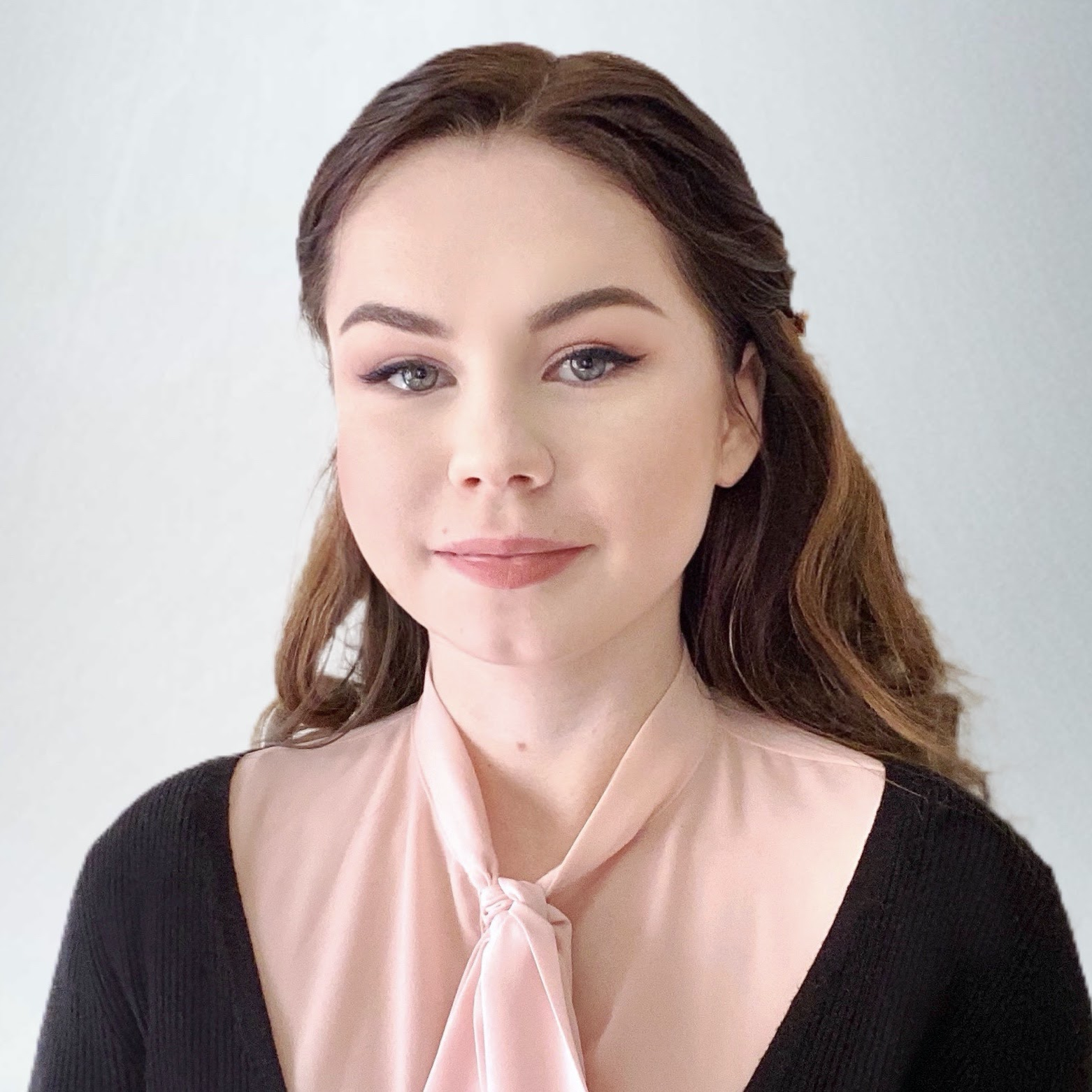
Doctoral Candidate
email : syncopem [at] yandex.ru
URL :
Keywords
Lexical semantics, corpora, Cognitive Linguistics
- Biryukova, A. 2018. Genre effects on metaphoric structuring of scientific concepts : A multivariate usage-based study. 11th International Conference of the Spanish Cognitive Linguistics Association. October, Cordoba, Spain.
- Biryukova, A. 2018. The semasiological variation of wish in English : a corpus-driven study. 4th International Conference on Figurative Thought and Language, October, Braga, Portugal.
Gioia FRANCHI
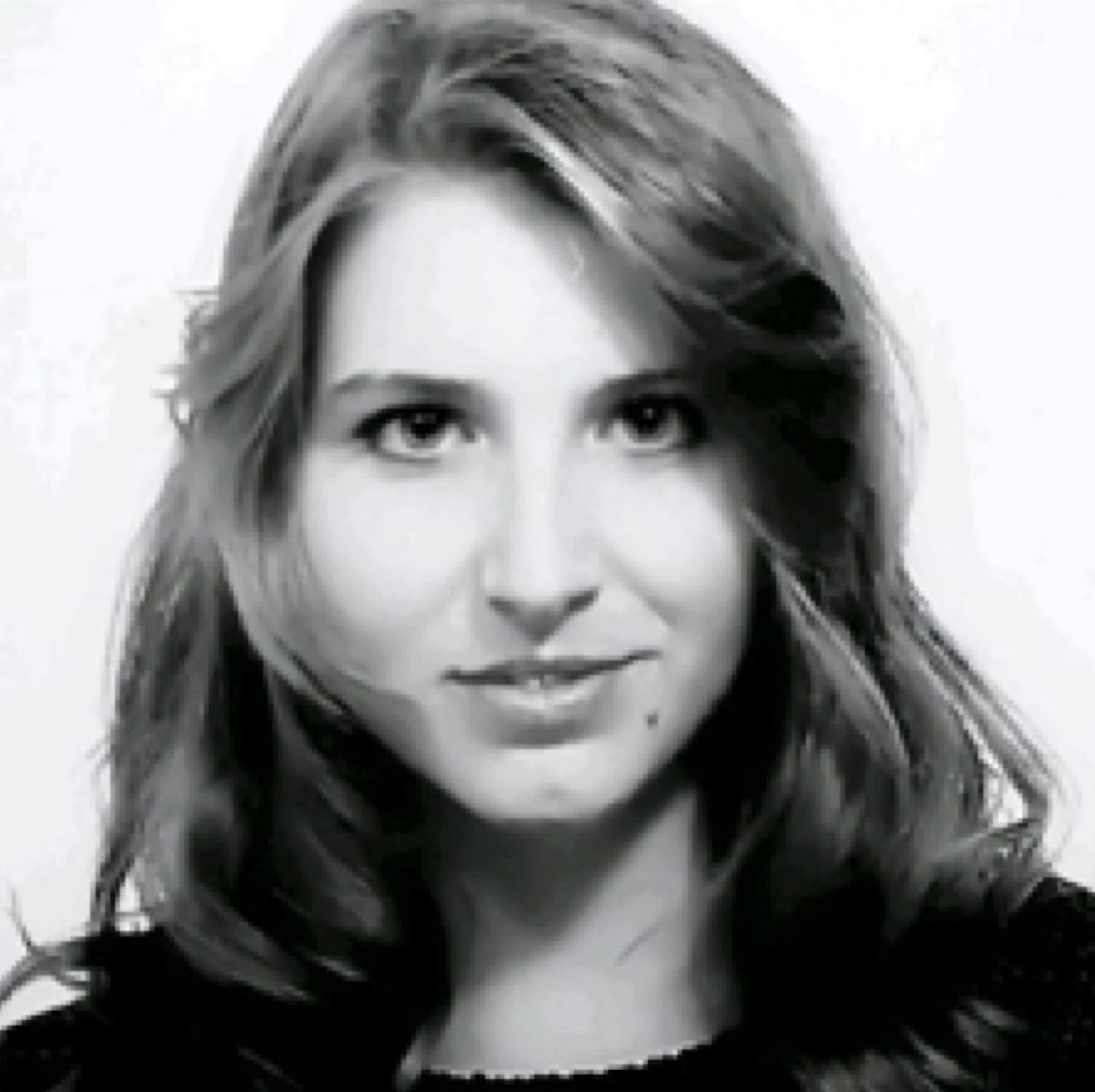
Doctoral Candidate
email : gioia.franchi [at] gmail.com
URL :
Keywords
Corpus Linguistics, Translation Studies, figurative language
My research deals with expressions and collocations in a cross-cultural perspective within different languages, i.e. Italian, French, English and Russian, which I have been passionate about since childhood. This love for cultures and different languages has guided me professionally in translation and localization projects, and is a source of inspiration for poetic and literary translations as well as cultural reportage and photo-reportage – respecting and acquiring the most from art, music and meditation in order to discover the richness of cultures.
- 2015. La madre : la Storia in un romanzo. Un inno ai giovani e alla ricerca della Verità" Studi e ricerche di storia contemporanea n° 83/84
- 2017. The lingual-socio-cultural potential of lexical units of the thematic group "Dacha" in the modern Russian language (on the background of Italian, French and English languages)", Sbornik nauchnyh trudov, Saint-Petersburg Mining University
- Seminaire de Traduction CREATIC - with the participation of Université de Paris 8/ Università di Firenze/ University of California - Berkeley hosted in Florence 2-10/06/2019 at the Villa
Meriem GUECHE
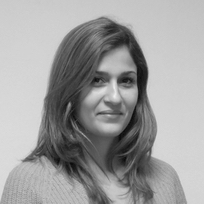
Doctoral Candidate
email : meriem.gueche [at] gmail.com
URL :
Keywords
Sociolinguistics, L2 Acquisition
The effects of multilingualism on the acquisition of vocabulary among L2 university learners of English. The data are collected in a multilingual and multicultural environment by means of written productions and questionnaires. The second part of my study involves the assessment of pragmatic competence among learners of English who have been exposed to both British and American English. Pragmatic tests and questionnaires were also designed to serve this purpose.
- Gueche, M. 2018. Interference and Input Complexity Effects on L2 Acquisition. 14th ESSE Conference, August, Brno, Czechia.
- Gueche, M. 2017. Multilingualism Effects on the Acquisition of English Vocabulary. Multilingualism in Society, Politics and Education Conference, March, Freiburg-im-Breisgau, Germany.
- Gueche, M. & Nacira, H. 2014. Teachers’ Perceptions and Attitudes towards British and American English. El Tawassol Langues et Littératures Journal 37 : 59-68.
Irina MATUSEVICH
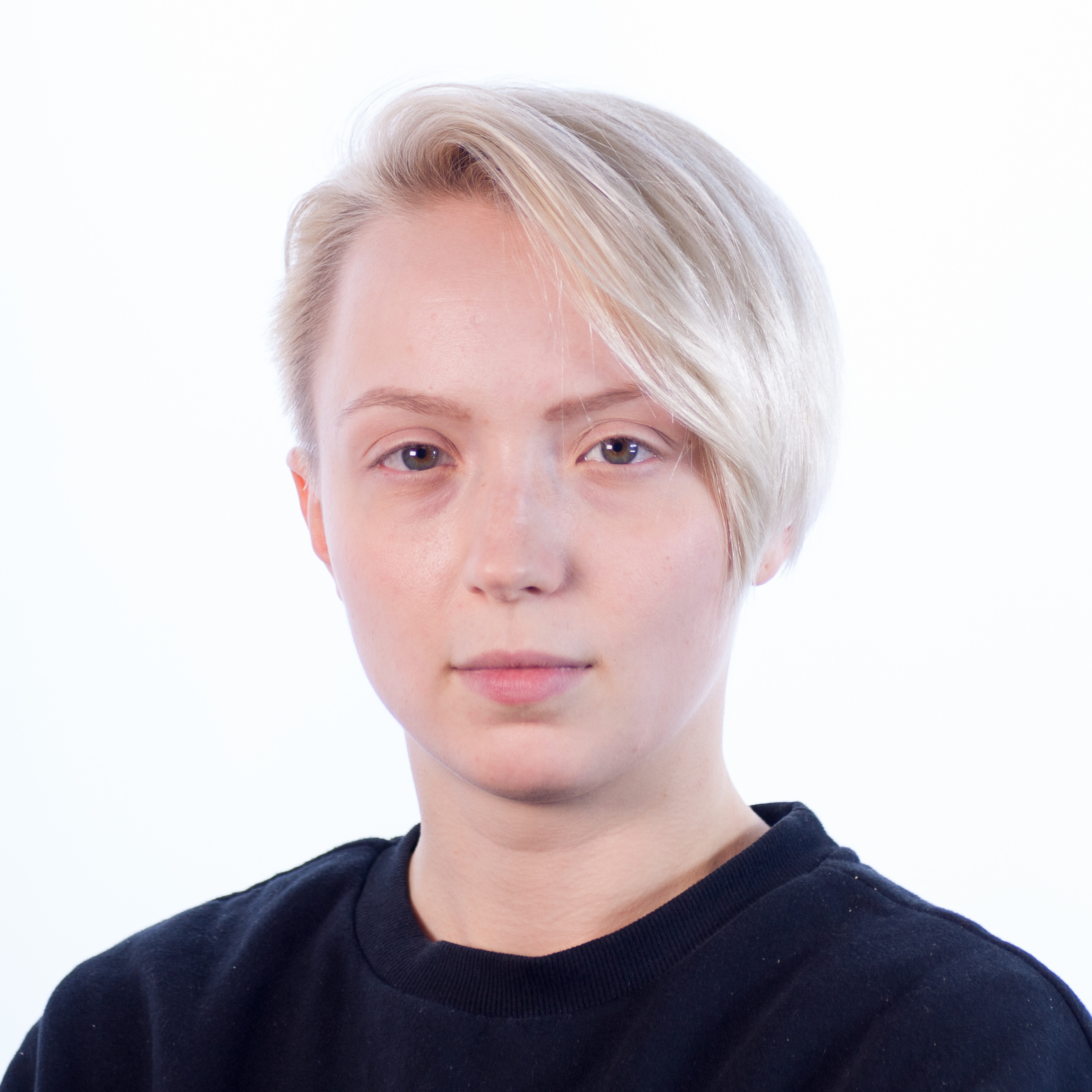
Doctoral Candidate
email : matusevich [at] phil.muni.cz
URL :
Didactics, discourse analysis
Thesis : Measuring Communicative Success of Educational Videos : A Quantitative Study of Linguistic Features Affecting Message Retention
Social media have relatively recently seen an emergence of a whole new category of videos, educational ones. These videos are varied and enjoy relative success. There is, however, a question of their communicative success : how high it is and, more importantly, what affects it ? Here, communicative success is operationalised as message retention. The goal of the research is thus to weed out of the high number of contributing factors the linguistic ones and analyse how they can affect message retention in educational videos.
- Matusevich, I. 2017. Metaphoric Structure of ANGER – Developing Usage-Based Methods for Contrastive Linguistics, ICLC14 International Cognitive Linguistics Conference, July, Tartu, Estonia.
- Matusevich, I. 2016. Conceptualising ANGER in Czech, Polish and Russian. A descriptive case study in usage-based semantics. Conference of the Spanish Society of Cognitive Linguistics, October, Alcalá de Henares, Spain.
- Matusevich, I. 2015. Teaching English for Academic Purposes Online.ICT for Language Learning, November, Florence, Italy.
Layla AIT ISHA
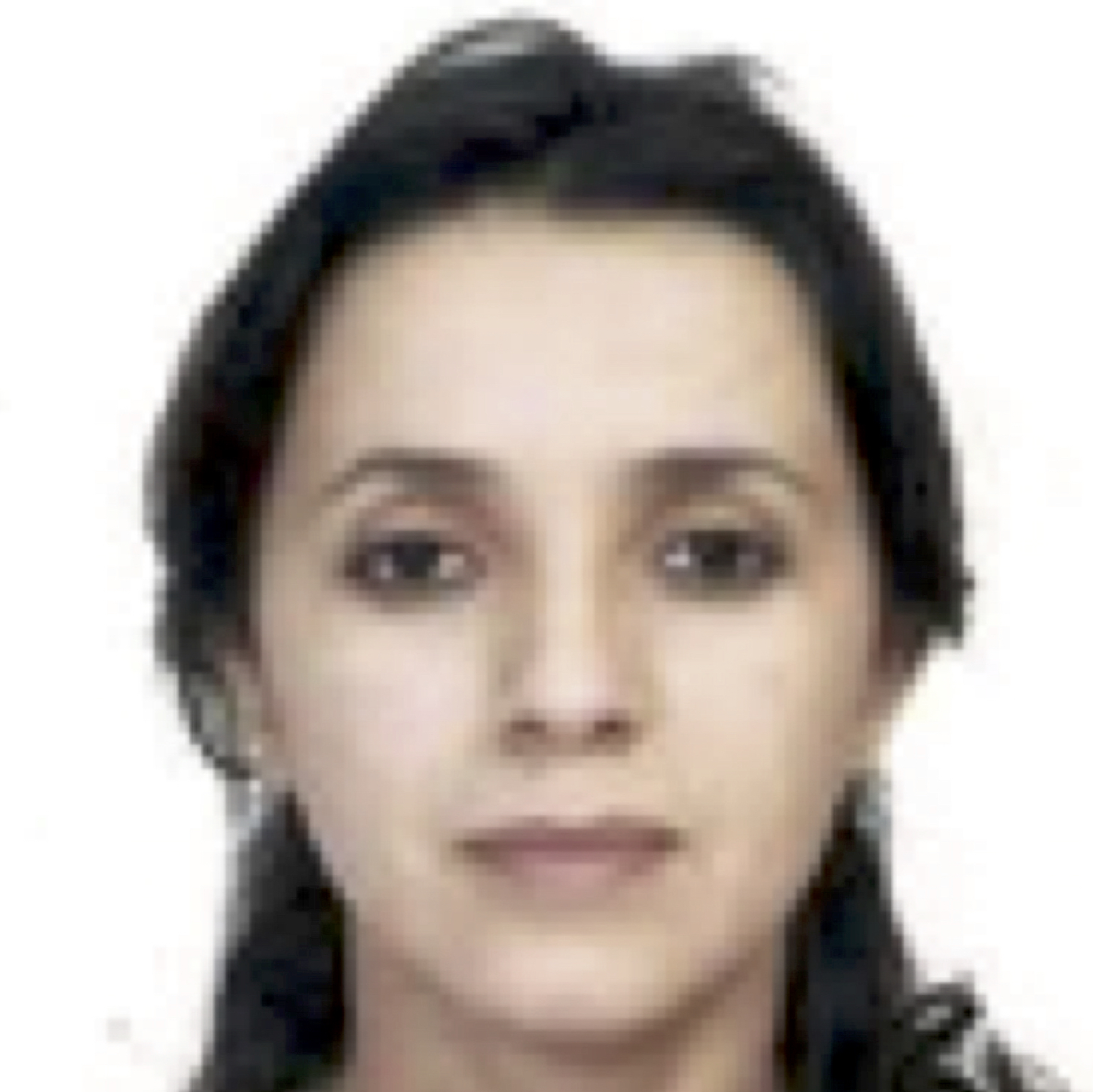
Doctoral Candidate
email : laylamexico [at] yahoo.com
URL :
Keywords
Sociolinguistics, lexicology, phonology
Olaf MIKKELSEN
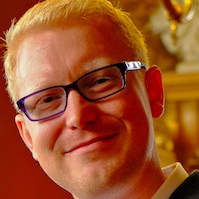
Research Assistant
email : olaf.mikkelsen [at] gmail.com
URL :
Keywords
Morphosyntax, corpora, constructions
- Mikkelsen, O. & Guelpa, P. 2018. Le Premier traité grammatical islandais dans l’histoire des théories linguistiques. CTLF
- Mikkelsen, O. 2018. A proposal for a mental representation of future constructions. Corpus-driven study of Norwegian future forms, October, Cordoba, Spain
- Mikkelsen, O. 2017. Making sense of Norwegian future forms. A collostructional analysis of Norwegian future constructions (skal/vil/kommer til å + INF) and a pilot multifactorial analysis of skal/vil + inf. 14th International Cognitive Linguistics Conference (ICLC-14), July, Tartu, Estonia

Doctoral Candidate
email : mai.kmmt [at] gmail.com
URL :
Keywords
Lexical semantics, corpora, emotions, Cognitive Linguistics
- Kumamoto, M. 2018. Testing the Invariance Hypothesis : A Case Study of Colour Metaphors in French. 4th International Conference on Figurative Thought and Language, October, Braga, Portugal.
- Kumamoto, M. 2018. The colour of emotion. An empirical study into the metaphoric structuring of ‘anger’, ‘fear’ and ‘sadness’ in French. 11th International Conference of the Spanish Cognitive Linguistics Association (AELCO 2018), October, Cordoba, Spain.
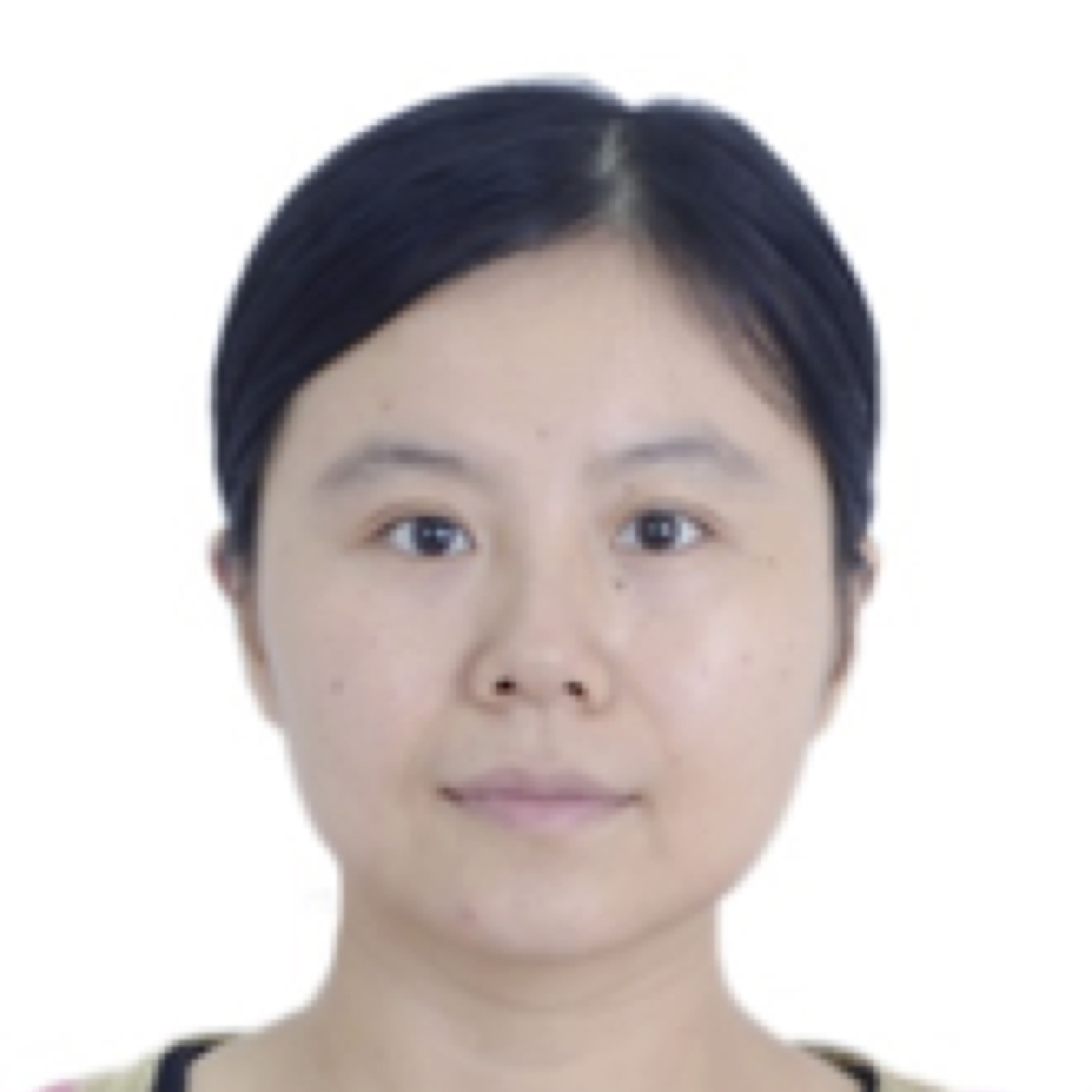
Doctoral Candidate
email : yangna823 [at] 163.com
URL :
Keywords
Lexicography, corpora, Chinese, French
Projet : Les relations familiales et le positionnement épistémique en chinois et en français : étude lexicométrique multidimensionnelle et comparative
En adoptant les méthodes analytiques au sein de la linguistique cognitive et de la linguistique systémique fonctionnelle, cette étude vise à analyser de manière approfondie la différence lexicale chinois-français, à partir des corpus, dans le but d’améliorer les dictionnaires bilingues d’apprentissage.

Doctoral Candidate
email : piovyr [at] gmail.com
URL :
Keywords
Morphosyntax, corpora
Project : The Polish instrumental in constructional alternations
My research is situated within the domain of usage-based corpus semantics, applied to the study of grammatical alternations and case. My PhD project focuses specifically on the Polish instrumental case, which, aside from its eponymous function, displays a broad array of vastly different uses. In several situations, the synthetic forms with the instrumental marking can be substituted by other structures, yielding near-synonymous effects. The project sets out to analyse these situations, capturing the variables underlying constructional choices made by the speakers, and, thereby, providing a usage-based description of the Polish instrumental.
- Wyro ?lak, P. 2018. A usage-based model of the accusative-instrumental alternation in Polish, July, Paris, France.
- Wyro ?lak, P. 2018. Accusative-instrumental alternation in Polish : Quantitative corpus study, October, Cordoba, Spain.

Research Assistant
email : maarie.chantre [at] gmail.com
URL :
Keywords
Lexical semantics, Cognitive Linguistics
Project : Representation of Conceptualisation of the Body in Cotemporary English
Based on corpus methods and statistical tools, this study aims to show the representation of the conceptualisation of the Body in both American and British English contemporary English
- Chantre, M. 2018. Corporal Construal. A quantitative analysis of the use of body-part terms as a source concept for SEXUALITY. 4th International Conference on Figurative Thought and Language, October, Braga, Portugal.
- Chantre, M. 2018. Conceptualising the body in America and Britain. A profile-based variationnist study of the use of body-part terms in online diaries. 11th International Conference of the Spanish Cognitive Linguistics Association (AELCO 2018), October, Cordoba, Spain.
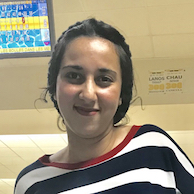
Research Assistant
email : maghraoui.amina [at] gmail.com
URL :
Keywords
Discourse Analysis, Gesture
Project : Straight face on the stand up comedian. Prosody and gesture in ironic discourse
This project explores how sarcasm is performed and how it is used in stand-up comedy in order to deliver humorous intentions by using gestural triggers. Sarcasm has been defined as a critical message which targets “someone or something specifically, be they present or not” (Tabacaru 2017). Our project consists of comparing the occurrences of sarcastic cues with the facial expressions and the prosodic features of the speaker since these non-verbal cues serve as ‘helpers’ (Tabacaru 2014) that guide the hearers to the interpretation of the humorous message. The data is mainly drawn from Ricky Gervais’ stand-up comedy show “Humanity” (live and informal speech) in order to prove the use of certain gestural triggers to mark (from the part of the speaker) and detect (from the part of the hearer) the occurrences of sarcasm such as raised eyebrows and other facial expressions.
- Tabacaru, S. & Maghraoui, A. 2018. Faces of humor : facial expressions as gestural triggers of sarcasm in the media. 11th International Conference of the Spanish Cognitive Linguistics Association (AELCO 2018), October, Cordoba, Spain.
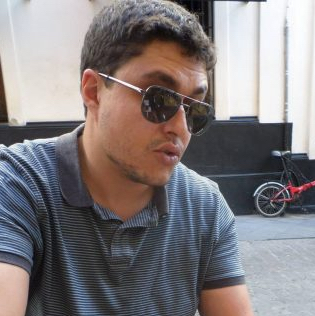
Research Assistant
email : chedy.by [at] gmail.com
URL : https://cbenyoussef.wordpress.com/
Keywords
Discourse analysis, Language Idiologies, sociocultural linguistics, corpus linguistics.
- Youssef, C. B. 2016. Empirical approach to Critical Discourse Analysis. A multivariate study on the reproduction of the discourses of racism in the media. 10th International Conference of Spanish Cognitive Linguistics Association, October, Madrid, Spain.
Associated Members
Guillaume DESAGULIER
Research
Corpus-based cognitive linguistics
- Desagulier, G. Forthcoming. A lesson from associative learning : what collostruction asymmetries reveal as to the productivity of in the Corpus of Contemporary American English.
- Desagulier, D. In press. Visualizing distances in a set of near synonyms : rather, quite, fairly, and pretty. D. Glynn & J. Robinson (eds), Polysemy and Synonymy : Corpus Methods Cognitive Semantics. Studies in polysemy and synonymy. Amsterdam : John Benjamins.
- Desagulier, D. 2012. “C’est de la bombe !” Qualitative count-to-mass conversion in French copular subject-predicate constructions. M. Bouveret & D. Legallois (eds), Constructions in French, 201-232. John Benjamins.
Oxana KHARLAMENKO
Keywords
Historical linguistics, corpus linguistics, Old English, Middle English
I’m interested in Old and Middle English morphosyntax and semantics. My doctoral dissertation dealt with Old English multiple gender nouns, and my current research focuses on number and the expression of non-individual in late Old and early Middle English. I am also interested in other older Germanic languages, particularly in Old Norse/Icelandic.
-
Kharlamenko, O. 2020. The Expression of Non-Individual in Some Old English Nouns. In R. Pérez Lorido, C. Prado-Alonso, P. Rodriguez-Puente (eds.) Of ye Olde Englisch. Language and Textes : New Perspectives on Old and Middle English Language and Literature : 25-50.
-
Kharlamenko, O. 2017. Grammatical Gender Variation in Old English Inanimate Nouns. Studies in Language Variation and Change 2 : 61-108.
-
Kharlamenko, O. 2016. A la confluence des genres : la perspective sur le neutre des collectifs vieil-anglais. Bulletin des anglicistes médiévistes, 89 : 3-23.
Former Members
Françoise DORO-MÉGY
Research
- Doro-Mégy, F. In press. Les traductions du verbe ESTIMER en anglais : Qui « estime » quoi ? Paris : Klincksieck.
- Doro-Mégy, F. 2009. Comment (ne pas) citer ses sources : rôle des sources assertives indéterminées dans la presse anglo-saxonne. A. Kacprzak (ed). Aspects interculturels de la communication, 189-196. Warsaw : nstytut Lingwistyki Stosowanej.
- Doro-Mégy, F. 2008. Etude croisée de " think", "believe", "croire" et "penser". Paris : Ophrys.
Yves-Bernard MALINIER
Research
The interface between syntax and semantics. Within the Théorie des Opérations Énonciatives, I explore the contribution of semantics to the argument-structure and tense-aspect constructions in which verbs occur.
Voice : subjective vs. objective representation, non-canonical verb constructions
Verb classes and verb patterns : (in)transitivity and property predications
Prepositions : from OE to Present-day English
Referential (in)definiteness and genericness, English indefinite pronouns and the distribution of the -body/-one morphemes
- Maliner, Yves. In press. La perte de sa valeur spatiale : cause première de la disparition de la préposition du Vieil-Anglais mid ? Th. Verjans & C. Badiou-Monferran (eds), Disparitions et changements linguistiques, Paris : Honoré Champion.
- Maliner, Yves. 2010. Représentation spatiale d’un cas non spatial : la préposition by dans les passives dites "longues". Anglophonia 26 : 7-22.
- Maliner, Yves. 2008. Du notionnel à l’énonciatif et retour : le cas de l’activo-passif en anglais actuel. Anglophonia 18 : 47-71.
Anne TORTEL
Aix-Marseille Université
Nadine HERRY-BÉNIT
Université Paris Nanterre
Farzaneh DERAVI
Nabila KHELIFA
Andrés PORRAS
Marie-Pierre GÉRON
Élise RYST
Research
- Ryst, E. (2012). « Rôle du contexte sur la perception de l’ambisyllabicité en anglais en fonction de la langue dominante de l’auditeur », publication électronique, revue CORELA, numéro thématique RJC Cotexte, Contexte, Situation, Université de Poitiers - Poitiers, France. Site : http://corela.edel.univ-poitiers.fr....
- Ditcheva, M., Dommergues, J.-Y. & Ryst, E. (2009). Modélisation et acquisition des voyelles à l’aide du logiciel SaRP, Scientific Works, vol. 47, Book 1, Philology, Plovdiv University "Païssii Hilendarski" – Plovdiv, Bulgaria. [Aide BQR MSH Paris-Nord]
- Ryst, E. (2008, en dépôt à la BU de l’Université P8). L’ambisyllabicité en anglais : une approche phonétique, mémoire de M2, 62p., mention Très Bien, Université Paris 8 (inclus en annexe : Ryst, E., 2007, On English Syllabification of isolated words : some phonological, perceptive, articulatory and varietal (UK, US) features of the English syllable, mémoire de M1, 84p., mention Très Bien, Université Paris 8).
Doctoral Candidate
email : silicheva [at] gmail.com
Syntax, Functional Linguistics
In preparation / To appear
Arnold, A. & E. Pépiot. in prep. Séduire par la voix, être séduit par l’ouïe – prolégomènes. Langage et Société.
Berracheche, A. to appear. Appraisal analysis of asylum seekers’ representation in French and British media. Linguistics and Human Science.
Didirková, I. & A.-C. Simon. to appear. Experimental phonetics and phonology. In S. Zufferey & P. Gygax (Eds.), The Routledge handbook of experimental linguistics. London : Routledge.
Glynn, D. to appear. Behavioral evidence for the conceptual structure of anger : A contrastive study of English and Russian. Language and Cognition.
Glynn, D. & M. Fabiszak. in prep. Emotions and Corpora. Behavioral evidence for conceptual structure. Cambridge : Cambridge University Press.
Glynn, D. & M. Kumamoto. in prep. The social emotion of shame in French. Usage-based lexical evidence for conceptual structure. Cognitive Linguistics Studies. (submission summer 2022)
Henkel, D. to appear. Verbs of perception and evidentiality in English/French translation. Languages in Contrast.
Jouannaud, M.-P. to appear. Designing posters to learn how to teach English. Cahiers de l’APLIUT.
Kumamoto, M. & D. Glynn. in prep. Shame in English and French. Usage-based lexical evidence for conceptual structure. Cognitive Semantics. (submission summer 2022)
Mikkelsen, O. & D. Glynn. to appear. Concrete constructions or messy mangroves ? How modelling contextual effects on constructional alternations reflect theoretical assumptions of language structure. Linguistic vanguard.
Mikkelsen, O. & D. Glynn. to appear. The future that may still be : The spread of blir å + INF in Norwegian. In S. Hartmann & L. Snee (Eds.), Futures of their pasts. Berlin : Language Science Press.
Tabacaru, S. to appear. Facial expressions as multimodal markers of humor : More evidence from scripted and non-scripted interactions. In B. Piegro-Valverde (Ed.), Multimodality and humor. Berlin : Mouton de Gruyter.
Wyro ?lak, P. to appear. Accusative-instrumental alternation in Polish. Zeitschrift fur Slawistik.
Wyro ?lak, P. & D. Glynn. to appear. Disentangling constructional networks : Integrating taxonomic effects into the description of grammatical alternations. Linguistic Vanguard.
2023
Cappelle, B., L. De Cuypere, I. Depraetere, C. Grandin & B. Leclercq. 2023. Possibility modals : Which conditions make them possible ? In I. Depraetere, B. Cappelle, M. Hilpert, L. De Cuypere, M Dehouck, P. Denis, S. Flach, N. Grabar C. Grandin, T. Hamon, C. Hufeld, B. Leclercq & H.-J. Schmid, Models of modals : From pragmatics and corpus linguistics to machine learning (Chapter 3), 93-117. Berlin : Mouton de Gruyter.
Depraetere, I., B. Cappelle, M. Hilpert, L. De Cuypere, M Dehouck, P. Denis, S. Flach, N. Grabar C. Grandin, T. Hamon, C. Hufeld, B. Leclercq & H.-J. Schmid. 2023. Models of modals : From pragmatics and corpus linguistics to machine learning. Berlin : Mouton de Gruyter.
Grabar, N., T. Hamon & B. Leclercq. 2023. Modals as a predictive factor for L2 proficiency. In I. Depraetere, B. Cappelle, M. Hilpert, L. De Cuypere, M Dehouck, P. Denis, S. Flach, N. Grabar C. Grandin, T. Hamon, C. Hufeld, B. Leclercq & H.-J. Schmid, Models of modals : From pragmatics and corpus linguistics to machine learning (Chapter 7), 199-224. Berlin : Mouton de Gruyter.
Leclercq, B. 2023. Modality revisited : Combining insights from Construction Grammar and Relevance Theory. In I. Depraetere, B. Cappelle, M. Hilpert, L. De Cuypere, M Dehouck, P. Denis, S. Flach, N. Grabar C. Grandin, T. Hamon, C. Hufeld, B. Leclercq & H.-J. Schmid, Models of modals : From pragmatics and corpus linguistics to machine learning (Chapter 2), 60-92. Berlin : Mouton de Gruyter.
Leclercq, B., B. Cappelle, I. Depraetere & C. Grandin. 2023. Necessity modals and the role of source as a predictive factor. In I. Depraetere, B. Cappelle, M. Hilpert, L. De Cuypere, M Dehouck, P. Denis, S. Flach, N. Grabar C. Grandin, T. Hamon, C. Hufeld, B. Leclercq & H.-J. Schmid, Models of modals : From pragmatics and corpus linguistics to machine learning (Chapter 4), 118-148. Berlin : Mouton de Gruyter.
Leclercq, B. & C. Morin. 2023. No equivalence : A new principle of no synonymy. Constructions 15 : 1-16.
2022
Crible, L., I. Didirková, C. Dodane & L Kosmala. 2022. Towards an inclusive system for the annotation of (dis)fluency in typical and atypical speech. Clinical Linguistics and Phonetics. [Online First]
Didirková, I. & S. Le Maguer. 2022. Finding a needle in a haystack : Studying articulatory trajectorie using automatic analysis on limited data. Proceedings of the 8th International Conference on Speech Motor Control : 104-105.
Glynn, D. 2022. Emergent Categories. Quantifying semantic distinctiveness and similarity in usage. M. Grygiel & B. Lewandowska-Tomaszczyk (Eds.), Contrast and Analogy in Language : Perspectives from Cognitive Linguistics, 245-282. Amsterdam : John Benjamins.
Glynn, D. & A. Biryukova. 2022. Death, enemies and and Death : How English and Russian conceptualise BOREDOM. Yearbook of the German Cognitive Linguistics Association 10 : 33-58.
Glynn, D. & A. Gimadieva. 2022. Boasting and the discourses of social media. A cross cultural and multimodal behavioural profile analysis of Instagram posts. K. Franco et al. (Eds.), Cognitive Sociolinguistics Revisited, 606-621. Berlin : Mouton de Gruyter.
Hirsch, F., I. Didirková, S. Ouni, S.A. Sheikh, Y. Laprie, M.-C. Monfrais-Pfauwadel & E. Burkhardt. 2022. La vélocité des mouvement labiaux et mandibulaires : Un indice pour différencier les disfluences typiques du bégaiement et les disfluences normales ? Une étude pilote. Actes de la conférence JEP 2022.
Joseph, C., I. Didirková, C. Dodane & C. Schweitzer. 2022. Les premières archives de la parole (1890-1940). Actes de la conférence JEP 2022.
Leclercq, B. 2022. Ad hoc concepts and the relevance heuristics : A false paradox ? Pragmatics. [Online First]
Leclercq, B. & I. Depraetere. 2022. Making meaning with be able to : Modality and actualisation. English Language & Linguistics 26(1) : 27-48.
Leclercq. B. 2022. From modals to modal constructions : an n-gram analysis of can, could and be able to. Constructions and Frames 14 : 226-261.
Mikkelsen, O. 2022. Review of T. Bouso, 2021, Changes in Argument Structure : The Transitivizing Reaction Object Construction. Nexus - Asociación Española e estudios Anglo-Norteamericanos.
Mikkelsen, O. & S. Hartmann. 2022. Competing future constructions and the Complexity Principle : A contrastive outlook. In S. Flach & M. Hilpert (Eds.), Broadening the Spectrum of Corpus Linguistics : New approaches to variability and change. Amsterdam : John Benjamins.
Pépiot, E. & A. Arnold. 2022. Différences acoustiques inter-genres chez des bilingues Anglais/Français : une étude du Voice Onset Time. Actes de la conférence JEP 2022.
Tabacaru, S. 2022. Facial expressions as multimodal markers of humor : More evidence from scripted and non-scripted interactions. B. Priego-Valverde (ed.), Multimodality and humor. Berlin : Mouton de Gruyter.
Tabacaru, S. 2022. Review of U. Schneider & M. Eitelmann (Eds.), 2020, Linguistic Inquiries into Donald Trump’s Language : From ’Fake News’ to ’Tremendous Success’. CADAAD, Vol. 14.
Tabacaru, S. 2022. Review of J. O’Driscoll, 2020, Offensive language. Taboo, offence and social control. LinguistList.
Wu, Y., I. Didirková & A.-C. Simon. 2022. Disfluences en parole continue en français : Paramètres prosodiques des pauses pleines et des allongements vocaliques. Actes de la conférence JEP 2022.
Wyro ?lak, P. 2022. No big deal : Situation-backgrounding uses of the Polish dative reflexive pronoun sobie/se. Yearbook of the German Cognitive Linguistics Association 10 : 77-98.
2021
Brault, V., S. Coulange, F. Leuté, M.-P. Jouannaud, M.-J. Martinez & A.-C. Perret. 2021. Comment former des groupes d’étudiants homogènes à partir des résultats de SELF ? Présentation d’un outil d’aide à la décision pour la création de groupes. In M. Masperi, C. Cervini & Y. bardière (Eds.), Évaluation des acquisitions langagières : Du formatif au certificatif, mediAzioni 32 : A185-A203.
Didirková I., S. Le Maguer & F. Hirsch. 2021. An articulatory study of differences and similarities between stuttered disfluencies and non-pathological disfluencies. Clinical Linguistics and Phonetics 35 : 201-221.
Jouannaud, M.-P., S. Coulange & A.-C. Perret. 2021. Piloting an automatic clustering algorithm to supplement placement test results for large groups of students. Collated papers for the ALTE 7th International conference.
Jouannaud, M.-P. & H. Hilton. 2021. Représentation phonologique des mots en langue étrangère. Les Langues Modernes.
Mandin, S., A. Zaher, S. Meyer, M Loiseau, G. Bailly, C. Payre-Ficout, J. Diard, S. Valdois, A. Blavot, M.-L. Bosse, Y. Briswalter, N. Chalon, E. Godde, S. Ingremeau, M.-P. Jouannaud, C. Lequette, E. Magnat, M. Masperi, A.-L. Piat-Marchant, A. Soh & M. Zanoni. 2021. Expérimentation à grande échelle d’applications pour tablettes pour favoriser l’apprentissage de la lecture et de l’anglais oral. In M. Lefèvre et al. (Eds.), Actes de la 10e Conférence sur les Environnements Informatiques pour l’Apprentissage Humain : 118-129.
Mignot, E. & D. Henkel. Noms d’humains, transparence et opacité : étude sur corpus du cas des composés en anglais, A. Aleksandrova & P. Meyer (Eds) Nommer l’humain, Descriptions, catégorisations, enjeux, 205-222. Paris : Harmattan.
Pépiot, E. 2021. « Ce que racontent nos voix » (interview). Femmes ici et ailleurs, numéro 41, janvier-février 2021, 14-15.
Pépiot, E. & A. Arnold. 2021. Cross-Gender Differences in English/French Bilingual Speakers : A Multiparametric Study, Perceptual and Motor Skills 128 : 153-177.
Serry, H. & D. Henkel. 2021. The work of editing, its context and tranformations : Denis Roche’s fictio and Cie collection (1974-2004). Australian Journal of French Studies 58(2). 123-136.
2020
Berracheche, A. 2020. Appraisal and Party Positioning in Parliamentary Debates : A Usage-Based Critical Discourse Analysis. International Journal of English Linguistics 10 : 322-334.
Didirková I., L. Lancia & C. Fougeron. 2020. Adaptations sur le F1 et le débit en réponse à diverses perturbations. Actes de la conférence JEP-TALN-RECITAL 2020, Vol.1 : 163-171.
Didirková I. & F. Hirsch. 2020. A two-case study of coarticulation in stuttered speech. An articulatory approach. Clinical Linguistics and Phonetics 34 : 517-535.
Henkel, D. 2020. Differentiating synonyms and adjective subclasses by syntactic profiling. Lexis 15. 1-42.
Henkel, D. 2020. L’adjectivité en anglais et en français. In F. Neveu & A. Roig (Eds.), Adjectivité. Approches descriptives de la linguistique adjectivale, 295-332. Berlin : Mouton de Gruyter.
Henkel, D. 2020. Lexical association as an indicator of conceptual convergence and divergence in English, French and Italian. In A. Alaman & V. Zotti (Eds.), The language of art and culture heritage : A pluringual and digital perspective, 120-139. Newcastle : CSP.
Henkel, D. 2020. English preterit modals and the French conditional : A comparable-parallel corpus analysis. In S. Granger & M.-A. Lefer (Eds.), Translating and comparing languages : Corpus-based insights, 165-189. Corpora and Language in Use Proceedings 6, Louvain-la-Neuve : Presses universitaires de Louvain.
Henkel, D. 2020. The conditional perfect, a quantitative analysis in English-French comparable-parallel corpora. In D. F. Iezzi, D. Mayaffre & M. Misucara (Eds.), Text analytics - Advances and challenges, 179-197. Cham : Springer.
Henkel, D. & P. Lacour. 2020. Collaboration strategies in multilingual online literary translation. In R. Desjardins, C. Larsonneur & P. Lacour (Eds.), When translation goes digital : Case studies and critical reflections, 153-171. New York : Springer.
Hirsch F., I. Didirková & C. Dodane. 2020. Manuel de pausologie. Recueil de recherches sur les pauses présentes dans la parole et le discours. Paris : L’Harmattan. (214pp)
Leclercq. B. 2020. Semantics and pragmatics in Construction Grammar. Belgian Journal of Linguistics 34 : 225-234.
Pépiot, E. & A. Arnold. 2020. Gender and Fundamental Frequency in English/French Bilingual Speakers. Paisii Hilendarski University of Plovdiv, Bulgaria – Research Papers 56 : 436-446.
Pépiot, E. & A. Arnold. 2020. Différences acoustiques inter-genres chez des bilingues Anglais/Français : une étude des formants vocaliques et de la qualité de voix. Actes de la conférence JEP-TALN-RECITAL 2020, Vol.1, 480-488.
Tabacaru, S. 2020. Ask a Linguist : Why does French, unlike other Romance languages (e.g., Italian, Spanish) has such a discrepancy between spelling and pronunciation ? Babel : The Language Magazine no. 31
Tabacaru, S. 2020. Faces of sarcasm. Exploring raised eyebrows with sarcasm in French political debates. A. Athanasiadou & H. Colston (Eds), Diversity of Irony, 256-277. Berlin : Mouton de Gruyter.
Wiemer, B., J. Wrzesie ?-Kwiatkowska & P. Wyro ?lak. 2020. How morphologically related synonyms come to make up a paradigm. Russian Linguistics 44 : 231-266.
2019
Didirková, I., L. Crible & A.-C. Simon. 2019. Impact of prosody on the perception and interpretation of discourse relations : Studies on "et" and "alors" in spoken French. Discourse Processes 56. 619-642.
Didirková, I., C. Dodane & S. Diwersy. 2019. The role of disfluencies in language acquisition and development of syntactic complexity in children. Actes de la conférence Disfluencies in Spontaneaous Speech. [Online]
Didirková, I., S. Le Maguer, F. Hirsch & D. Dbedahou. 2019. Articulatory behavior during disfluencies in stuttered speech. In S. Calhoun, P. Escuerdo, M. Tabain & P. Warren (Eds.), Proceedings of the 19th International Congres of Pronetic Sciences, 2991-2995.
Dodane, C., D. Boutet, I. Didirková, F. Hirsch, S. Ouni & A. Morgenstern. 2019. An integrative platform to capture the orchestration of gesture and speech. Proceedings of the 6th Gesture and Speech in Interaction (GeSpIn) Conference, 27-33.
Glynn, D. 2019. The status of multimodal constructions in developing models and empirical testing. A methodological perspective. Language, Mind, Culture and Society 3 : 149-158.
Kocjan ?i ? Antolík, T., C. Pillot-Loiseau & T. Kamiyama. 2019. The effectiveness of real-time ultrasound visual feedback on tongue movements in L2 pronunciation training. Journal of Second Language Pronunciation 5 : 72–97.
Krawczak, K. & D. Glynn. 2019. Operationalising construal. A corpus based study in cognition and communication constructions. Jezikoslovje 20. 1-30.
Tabacaru, S. 2019. Review of Jörg Meibauer (Ed.), 2018, The Oxford Handbook of Lying. LinguistList Vol. 30.4725.
Tabacaru, S. 2019. A Multimodal Study of Sarcasm in Interactional Humor. Berlin : Mouton de Gruyter. (285pp)
2018
Henkel, D. 2018. Quantifying translation : An analysis of the conditional perfect in an English-French comparable-parrallel corpus. JADT’2018 Proceedings of the 14th International Conference on Statistical Analysis of Textual Data, 375-383.
Mikkelsen, O. & P. Guelpa. 2018. Le Premier traité grammatical islandais dans l’histoire des théories linguistiques. Corpus de Textes Linguistiques Fondamentaux.
Pépiot, E. & A. Arnold. 2018. Étude des variations de fréquence fondamentale relatives au genre chez des bilingues Anglais/Français. Actes de la conférence JEP 2018, 178-186.
Tabacaru, S. 2018. When languages bites : A corpus-based typology of sarcastic utterances in American television-series. Pragmatics & Cognition 24(2). 186-211.
Tabacaru, S. 2018. Review of K. B. Fägersten, 2016, Watching TV with a linguist. LinguistList Vol. 27. 3417.
2023
The conceptualisation of BOREDOM in English, French and Russian : A quantitative corpus-driven study
Conference Paper, 16th International Cognitive Linguistics Conference
7-11 August, Düsseldorf, Germany
Avgustina Biryukova
The role of polysemy of English negation in the linguistically restrictive environment of the courtroom : A case study of the construal of responsibility in three Chicago rape trials
Conference Paper, 16th International Cognitive Linguistics Conference
7-11 August, Düsseldorf, Germany
Lalou Rival
Language use as evidence for distinct cross-linguistic conceptual structure. A corpus study of social emotions in French and English
Conference Paper, 16th International Cognitive Linguistics Conference
7-11 August, Düsseldorf, Germany
Mai Kumamoto & Dylan Glynn
Schemas, chunks and everything between. Evidence from Germanic and Romance
Conference Paper, 16th International Cognitive Linguistics Conference
7-11 August, Düsseldorf, Germany
Olaf Mikkelsen
Revisiting constructional gradience : V-PP patterns in the history of English
Conference Paper, 16th International Cognitive Linguistics Conference
7-11 August, Düsseldorf, Germany
Piotr Wyro ?lak
From ’no synonymy’ to ’no equivalence’
Conference Paper, 16th International Cognitive Linguistics Conference
7-11 August, Düsseldorf, Germany
Benoît Leclercq and Cameron Morin
Emergent Constructions. Modelling composite structure in non-modular non-discrete grammar
Conference Paper, 16th International Cognitive Linguistics Conference
7-11 August, Düsseldorf, Germany
Dylan Glynn
2022
On lexially-regulated saturation
Conference Paper, 5th International Conference of the American Pragmatics Association (AMPRA)
November 2022, University of South Carolina, Columbia SC.
Depraetere, I & Leclercq, B.
Esthétique de la voix dans les livres audio en langue française
Conference Paper, 8e Congrès Mondial de Linguistique Française
July 2022, Orléans, France
Hirsch F., Frontini F., Didirková I., Drengubiak J.
Is it President Obama’s fault ? Is it President Obama’s fault ? Gesture and emphasis in the US presidential debates of 2016
Poster Presentation, International Society for Gesture Studies - ISGS 2022
July 2022, Chicago, Illinois
Tabacaru, S. & Lelandais M.
Kumamoto, M. & Glynn, D.
June 2022, Logroño, Spain
Biryukova, A. & Glynn, D.
Logroño, Spain
Jeg tror & co. Verb constructions of stance in Norwegian blog texts. Horbowicz, Paulina & Olaf Mikkelsen. CxGN. September 2022, Kiel, Germany
Behavioural patterns and grammatical constructions. Predicting alternation choices between English future constructions.
GAC. Ghent, Belgium, 30 June – 2 July 2022.
Mikkelsen, O. & Glynn, D.
La vélocité des mouvements labiaux et mandibulaires : un indice pour différencier les disfluences typiques du bégaiement et les disfluences normales ? Une étude pilote.
Poster Presentation, Journées d’Etudes sur la Parole
June 2022, Ile de Noirmoutier, France
Hirsch F., Didirková I., Ouni S., Sheikh S., Laprie Y., Monfrais-Pfauwadel M.-C., Burkhardt E.
Les premières archives de la parole (1890-1940)
Conference Paper, Journées d’Etudes sur la Parole
June 2022, Ile de Noirmoutier, France
Joseph C., Didirková I., Schweitzer C., Dodane C.
On the semantics-pragmatics interface : a cognitive approach
Guest Lecture, University of Graz
June 2022, Graz, Austria
Leclercq, B.
The post-modal grammaticalization of concessive may and might
Conference Paper, La postmodalité et les cycles de vie des expressions modales
June 2022, Caen, France
Leclercq, B.
Disfluences en parole continue en français : paramètres prosodiques des pauses pleines et des allongements vocaliques.
Conference Paper, Journées d’Etudes sur la Parole
June 2022, Ile de Noirmoutier, France
Wu Y., Didirková I., Simon A.-C.
Différences acoustiques inter-genres chez des bilingues Anglais/Français : une étude du Voice Onset Time
Poster Presentation, JEP
June 2022, Ile de Noirmoutier, France
Pépiot, E. & Arnold A.
2021
Does prosody improve the acceptability of comprehension of polyfunctional discourse markers ?
Conference Paper, Discourse in corpus and experimental data : Bridging the methodological gap
March 2021, Louvain-la-Neuve, Belgium
Didirková I., Crible L., & Simon A.-C.
Making meaning : A view from Construction Grammar and Relevance Conference Paper, Constructions and contexts
October, 2021, Paris, France.
Leclercq, B
Etude EMA de l’activité articulatoire pendant les disfluences normales et typiques du bégaiement
Conference Paper, Séminaire Phonétique Clinique de l’Association Francophone de la Communication Parlée (AFCP)
May 2021, online
Vallé A., Laprie Y., Ouni S., Didirková I., Xiu N., & Hirsch F.
De l’annotation des disfluences en parole pathoologique et non pathologique
Poster Presentation, Séminaire Phonétique Clinique de l’Association Francophone de la Communication Parlée (AFCP), mai, en ligne, communication affichée
May 2021, online.
Dodane C., Didirková I., Crible L., Kosmala L., Monfrais-Pfauwadel M.-C., Pallaud B., Roques C., Morgenstern A., & Hirsch F.
Gestes manuels pendant les disfluences normales et bègues : une étude préliminaire
Poster Presentation, Séminaire Phonétique Clinique de l’Association Francophone de la Communication Parlée (AFCP)
May 2021, online.
Dodane C. & Didirková I.
A new model for the analysis of modal meaning : A theoretical bridgebetween Construction Grammar and Relevance theory
Conference Paper, Rethinking English modal constructions : From feature-based paradigms to usage-based probabilistic representations, ISLE 6.
2-5 June, Joensuu, Finland.
Benoît Leclercq
Necessity modals and the role of source as a predictive factor
Comference Paper, Rethinking English modal constructions : From feature-based paradigms to usage-based probabilistic representations, ISLE 6.
2-5 June, Joensuu, Finland.
Ilse Depraetere, Bert Cappelle, C. Grandin & B. Leclercq
Modals as predictive factor for L2 proficiency level
Conference Paper, Rethinking English modal constructions : From feature-based paradigms to usage-based probabilistic representations, ISLE 6.
2-5 June, Joensuu, Finland
Grabar, N., B. Cappelle, I. Depraetere, C. Grandin & B. Leclercq
Making meaning with modals : A view from Construction Grammar
Conference Paper, 11th International Conference on Construction Grammar (ICCG 11)
18-20 August, Antwerp, Belgium
Benoît Leclercq
Paradigmatic constructions : A usage-based onomasiological study in
Polish prefix alternations
Conference Paper, 11th International Conference on Construction Grammar (ICCG 11)
18-20 August, Antwerp, Belgium
Dylan Glynn & Piotr Wyro ?lak
Predicting the Future. Combining corpus evidence and elicitation to understand speakers’ choices in constructional alternations
Conference Paper, 11th International Conference on Construction Grammar (ICCG 11)
18-20 August, Antwerp, Belgium
Olaf Mikkelsen
Developing diagnostic tools to identify L2 English listening difficulties : the example of an aural grammaticality judgment test
Conference Paper, ONELA 2021 - Instruments and Explorations in Applied Linguistics
19-21 October, Toulouse, France
Marie-Pierre Jouannaud
May and might in concessive clauses : A case of post-modal grammaticalization ?
Conference Paper, Constructions and Paradigms
November 2021, Paris, France
Leclercq, B.
Behavioural Profiles and Cognitive Models. A usage-based approach to the conceptual structure of ANGER in English and Russian
Conference Paper, 9th International Conference of the German Cognitive Linguistics Association
*NEW DATE* 22-25 March 2022, Erfurt, Germany
Dylan Glynn & Aliya Gimadieva
Conceptualization of negative social emotions. A behavioral case study in Japanese
Conference Paper 9th International Conference of the German Cognitive Linguistics Association
*NEW DATE* 22-25 March 2022, Erfurt, Germany
Mai Kumamoto
Controlling Boredom : A quantitative cross-linguistic and context-dependent analysis of the emotion concept BOREDOM
Conference Paper, 9th International Conference of the German Cognitive Linguistics Association
*NEW DATE* 22-25 March 2022, Erfurt, Germany
Avgustina Biryukova
A Behavioral Profile Approach to Lexical Equivalence of the Chinese Emotion Concept ?? ‘tension’ in French
Conference Paper, 9th International Conference of the German Cognitive Linguistics Association
*NEW DATE* 22-25 March 2022, Erfurt, Germany
Jing Bai & Dylan Glynn
The accusative-instrumental alternation in seventeenth eighteenth century Polish : the relation with aspect
Conference Paper, Slavic Aspect and Corpora
29-31 March 2021, Mainz, Germany
Piotr Wyro ?lak
Fluence, disfluences et bégaiement
Invited Lecture, Séminaires de Recherche en Phonétique et Phonologie
Université Paris 3 Sorbonne-Nouvelle
January 2021, Paris, France
Hirsch F. & Didirková I.
2020
Vers une reclassification des disfluences typiques du bégaiement
Invited Lecture, Séminaires thématiques de LiLPa, Université de Strasbourg
December 2020, Strasbourg, France
Ivana Didirková
Polish reflexive pronoun ‘sobie’ : understanding the ‘ethical’ uses
Conference Paper, 8th International Conference Grammar & Corpora
25-27 November 2020, Krakow, Poland.
Piotr Wyro ?lak
Ad hoc concepts and the relevance heuristics : An unresolved paradox ?
International Symposium on Intercultural, Cognitive and Social Pragmatics Sept (EPICS 9)
4-6 Novembre 2020, Seville, Spain.
Benoît Leclercq
Adaptations sur le F1 et le débit en réponse à diverses perturbations
Conference Paper, 33èmes Journées d’Etude sur la Parole (JEP-TALN-RECITAL)
June 2020, Nancy, France.
Didirková I., Lancia L., & Fougeron C.
Différences acoustiques inter-genres chez des bilingues Anglais/Français : une étude des formants vocaliques et de la qualité de voix
Conference Paper, 33èmes Journées d’Etude sur la Parole (JEP-TALN-RECITAL)
12 Juin 2020, Nancy, France.
Erwan Pépiot
Conceptualization of negative social emotions. A behavioral case study in English
Conference Paper, UK Cognitive Linguistics Conference 2020
27-29 July 2020, Birmingham, England
Mai Kumamoto
Future alternations in English and Norwegian : A contrastive corpus study
Conference Paper, UK Cognitive Linguistics Conference 2020
27-29 July 2020, Birmingham, England
Olaf Mikkelsen & Stefan Hartmann
Behavioural Profiles : A qualitative – quantitative method for the description of concepts and functions
Plenary Lecture at Semantics of Grammatical Markers in Semitic Languages
13-14 February 2020, Berlin, Germany
Dylan Glynn
Semantic Patterns A quantitative usage-based method for the description of grammatical and lexical meaning
Invited Lecture, Sprachwissenschaftliches Institut, Ruhr-Universität
28 January 2020, Bochum, Germany
Dylan Glynn
2019 - under construction
2023
The construal of responsibility in three Chicago rape trials. English negation in courtroom
Lalou Rival
TransCrit, Paris 8
March 2022 - Date TBA
Lexico-constructional profiling of desire and boredom in Russian, French and English
Avgustina Biryukova
TransCrit, Paris 8
March 2022 - Date TBA
Emotions corpora - title TBA
Javier Enrique Díaz Vera
Universidad de Castilla-La Mancha
June
Constructions - title TBA
LIU Na
Beihang University, Beijing, China
October
2022
Pragmatics and creative writing
Billy Clark
12h00-14h00, MR 107, Université Paris 8
10 March 2022
This talk considers how pragmatic theories can be applied and developed in considering the practice of creative writers. Some of the ways in which creative writers talk about their practice are likely to make pragmatic theorists optimistic, i.e. to suggest pragmatic theories are likely to be able to shed light on this. Raymond Carver, for example, claimed that ‘any literary work . . . is an act of communication between the writer and reader’, and Stephen King described writing as ‘telepathy . . . a meeting of minds’.
Others have seen writing as much more mysterious and so harder to explain. Harold Pinter, for example, described writing as ‘a highly ambiguous transaction . . . which might give way under . . . the author at any time’.
George Saunders (2021) talks about writing in more than one way. Some of his discussion suggests a fairly reflective practice involving fairly explicit reasoning. In other places, he suggests a more intuitive and unreflective practice.
At first glance, many pragmatic theories seem more suited to accounting for the more reflective practice than the more intuitive variety. This talks considers to what extent ideas developed within relevance theory (Sperber and Wilson 1986) can contribute to understanding each of these kinds of writing practice. One conclusion of the talk is that exploring these ideas can help us both to develop understanding of creative writing practice and to develop pragmatic theories.
How do speakers make meaning ?
Benoît Leclercq
12h00-14h00, MR 107, Université Paris 8
15 March 2022
The aim of this talk is twofold. First, I will introduce the underlying questions that stimulate my research. Second, I hope to spark discussion on issues that I fear may still lack convincing answers. The bulk of my work is to understand how speakers manage to make meaning. The idea that verbal interaction rests on both the appropriate use of linguistic conventions and contextual pragmatic processes is now accepted as general truth in linguistic theory. The challenge is mainly to pin down the degree to which each of these factors is responsible for the success of communication. This requires spelling out a clear view on the semantics-pragmatics interface and to pin down the exact contribution that different linguistic signs make to the interpretation process. This presentation provides a theoretical discussion of these questions ; English modals will be used as testground for some of the hypotheses put forward.
The role of lexical knowledge in L2 listening comprehension
Marie-Pierre Jouannaud
12h00-14h00, MR 107, Université Paris 8
22 March 2022
The presentation will begin by reviewing different strands of research pointing to the central role of the lexicon in language processing and performance. Psycholinguistic models of language processing place lexical knowledge at the center of the listening process, between sound recognition on the one hand, and grammatical integration of meaning on the other, as well as at the intersection of lower-level (formal) and higher-level (meaning-based) processes. Many second language acquisition studies have also reported high correlations between vocabulary size and receptive skills in L2 speakers. Against this backdrop, I will present my own research in instructed second language acquisition of English as a foreign language. The presentation will describe the development of an aural vocabulary recognition test, the exploration of the role of phraseological knowledge (over and above knowledge of isolated words) in listening comprehension, and an analysis of the changing role of vocabulary items in the official syllabus for foreign languages published by the French ministry of education.
The socio-cultural dimensions of representing asylum seekers in media
Anissa Berracheche
Postponed, date to be announced
Voice, speech and gender norms in English/French bilinguals
Erwan Pépiot & Aron Arnold
Postponed, date to be announced
Phonetic perspectives on (dis)fluency
Ivana Didirková
Postponed, date to be announced
Multimodal quantiative Discourse Analysis : Self-praise strategies on French and Russian Instagram
Aliya Gimadieva
Postponed, date to be announced
The social emotion of shame in French
Mai Kumamoto
Postponed, date to be announced
Upcoming Events
Summer School
Corpora and Statistics for Linguistics and the Social Sciences
Dylan Glynn & Daniel Henkel
5 June – 9 June 2023, Paris 8
Workshop
Statistique qualitative avec R
Dylan Glynn
5 June – 8 June 2023, Paris 8
Workshop
Grammatical Constructions and the Usage-Based Model
16th International Cognitive Linguistics Conference
Dylan Glynn, Olaf Mikkelsen, Piotr Wyroslak
7-11 August 2023, Düsseldorf, Germany
Workshop
Emotions and Language
9th International Conference of the German Cognitive Linguistics Association
Mai Kumamoto, Avgustina Biryukova, Dylan Glynn
4 March 2022, Erfurt, Germany
Converted to online event - Here is the link
Workshop
Empirical Evidence for the Figurative Structure of Emotions
6th International Conference on Figurative Thought and Language
Avgustina Biryukova, Mai Kumamoto, Dylan Glynn
22-23 April 2022, Poznan, Poland
For more information - Here is the link
Workshop
Constructions et contexte(s)
2nd Parisian workshop on Construction Grammar
Benoît Leclercq, Guillaume Desagulier, Dylan Glynn
09 November 2022, Paris 8, France
Dates to be confirmed
Workshop
Study Design - workshop doctoral and master students
Guest Lecturer - Sascha Wolfer, IDS Mannheim
March 2023
Workshop
Informatique et Disfluences
Université Paris 8 Vincennes - St Denis
Postponed - Date to be announced
Ivana Didirková, co-organised with Praxiling (CNRS UMR 5267, Université Paul-Valéry Montpellier 3).
Workshop
Language and Interaction
Lilli Parrott & Sabina T ?b ?caru
2022, dates to be annouced
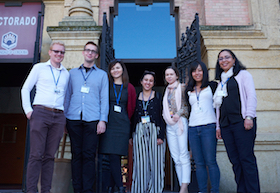
Past Events
Workshop
Constructions and Paradigms
12-13 November 2021
Université Paris 8 Vincennes - St Denis
Dylan Glynn, Benoît Leclercq, Olaf Mikkelsen, Piotr Wyro ?lak
Conference
DiSS 2021
10th workshop on Disfluency in Spontaneous Speech
25-27 August 2021
Université Paris 8 Vincennes - St Denis
Ivana Didirková, Takeki Kamiyama, Sabina T ?b ?caru
Co-organised with Praxiling (CNRS UMR 5267, Université Paul-Valéry Montpellier 3).
Workshop
Quantitative approaches to constructional variation
11th International Conference of the Spanish Cognitive Linguistics Association (AELCO),
17-19 October 2018, Cordoba, Spain
Dylan Glynn & Olaf Mikkelsen
Photos
Conferece
Language in Constrast
Université Paris 8 Vincennes - St Denis
Dylan Glynn & Lilli Parrot
4-5 December 2015
Conference
Phonologie - Acquisition et Discours - Constructions
Université Paris 8 Vincennes - St Denis
Dylan Glynn & Takeki Kamiyama
29 novembre 2014
Workshop
Corpus-based Approaches to Semantics and Pragmatics
47th Annual Meeting of the Societas Linguistica Europaea
Guillaume Desaglier & Dylan Glynn
11-14 September 2014, Pozna ?, Poland
Workshop
Verbal Prefixes and Particles
47th Annual Meeting of the Societas Linguistica Europaea
Agnieszka B ?dkowska-Kopczyk, Dylan Glynn & Lilli Parrot
11-14 September 2014, Pozna ?, Poland
Workshop
Epistemic Stance and Evidentiality
47th Annual Meeting of the Societas Linguistica Europaea
Françoise Doro-Mégy, Dylan Glynn, Karolina Krawczak
11-14 September 2014, Pozna ?, Poland
Workshop
Evidentiality, Modality and Corpus Linguistics
International Conference on Evidentiality and Modality in European Languages 2014 (EMEL’14)
Dylan Glynn & Paola Pietrandrea (University of Tours & CNRS LLL)
6-8 October 2014, Madrid, Spain
LAPS (-2013)
Au carrefour du bilinguisme, de la psycholinguistique et de la phonétique
4-5 Juillet 2013
The corpora listed below were all compiled by members of our team and are available upon request.
LiveJournal Corpus of British and American English
Leuven University and Lund University
Spelman & Glynn 2006-2012
Contact : Dylan Glynn
CanalBlog Corpus of French
University of Paris 8
Yang, Kumamoto, Biryukova & Glynn 2018
Contact : Mai Kumamoto
Personal Blog Corpus of Japanese
University of Paris 8
Kumamoto 2019
Contact : Mai Kumamoto
Personal Blog Corpus of Norwegian
University of Paris 8
Mikkelsen 2021
Contact : Olaf Mikkelsen
Spoken Corpus on Ceuta Spanish
University of Paris 8
Ait Isha 2019
Contact : Layla Ait Isha
LiveJournal Corpus of Russian, Surzhyk and Ukrainian
University of Paris 8
Glynn 2015
Contact : Dylan Glynn
Portugese Personal Blogs
University of Paris 8 & Palacky ? University, Olomouc
Glynn & Zmetáková 2015
Contact : Dylan Glynn
Blog Corpus of Informal Contemporary Mandarin
University of Paris 8
Yang, Bai & Glynn
Contact : Dylan Glynn
Catalan Blog Corpus
University of Paris 8
Glynn & Rieck 2015
Contact : Dylan Glynn
Corpus of American Sport Commentaries
University of Paris 8
Glynn 2012
Contact : Dylan Glynn
MultiMost
University of Paris 8
Glynn & Chantre - in progress, not yet available
Multimodal Corpus of Instagram Boasting of English, French and Russian
University of Paris 8
Gimadieva & Glynn - in progress, in progress, not yet available
Data Collection
The Use of Emojis
Contact : Sabina T ?b ?caru
Use of humor in interaction
Annotating humor exchanges in ELAN
Contact : Sabina T ?b ?caru
Stance taking in conversation across Europe
![]() Videoing dinner conversations in various languages
Videoing dinner conversations in various languages
Contact : Dylan Glynn
Instagram Posts and Boasting
– Tokenisation of boasting on Instagram in English, French and Russian
Data Annotation
Polysemy of over
– Semantic annotation of written text in English
Contact : Dylan Glynn
Experience of ANGER in English, Russian
– Semantic annotation of written text in English
Contact : Dylan Glynn
Future Reference in Germanic and Italic
– Semantic annotation of written text in French, Spanish, English and Norwegian
Contact : Olaf Mikkelsen
Data Transcription
Andalusian Dialect Variation
– Transcription of Spanish audio corpora
Contact Layla Ait Isha
The Grammar of Gesture
– Spoken Tunisian Arabic Spoken Transcription
Contact :
Expressing Opinion
– Czech Spoken Transcription
– French Spoken Transcription
– Polish Spoken Transcription
– Portuguese Spoken Transcription
– Romanian Spoken Transcription
– Russian Spoken Transcription
Corpus Methods and Qualitative Data in Linguistics and the Social Sciences
Université Paris 8
5-9 June, 2023
Paris 8 University is pleased to announce the 5th Summer Intensive Program in corpora and staistics.
This will be a 30h week-long course consisting of :
—morning sessions devoted to data collection, extraction and organization, as well as DIY corpus building
— afternoon sessions focusing on statistical analysis of the data produced during the morning sessions
Participants will learn how to :
— formulate advanced search queries in a concordancer (e.g. TextSTAT, AntConc)
— compile a text corpus with BootCaT
— automatically annotate a text corpus in TreeTagger
— manually annotate a text corpus in UAM CorpusTool
— measure keyword specificity and collocation strength using AntConc
— perform statistical analyses in R
This program is intended primarily for researchers and upper-level students (Masters or Doctorate). Tuition will be 90€, or 60€ (reduced rate) for students and personnel from Paris 8.
Places in the courses are limited and so, unfortunately, we cannot promise that all applicants will be able to participate.
If you should like to participate, or request further information, please send an email to the organizers indicating name, status (e.g. Doctoral student, Post-doctoral researcher, Faculty) and 5 keywords describing your research interests using using this link.
For more information write to Daniel daniel.henkel [at] univ-paris8.fr or Dylan dsg.up8 [at] gmail.com
Linguistique, Acquisition des langues Vocales et langues des Signes (LAVS)
Présentation
Master fortement adossé à la recherche qui se déroule au sein des laboratoires Structures Formelles du Langage (UMR 7023), Linguistique Empirique : Cognition, Société et Langage (RU TransCrit 1569) et Etudes Romanes (EA LER 4385) proposent une formation complète et diversifiée en Sciences du Langage abordant divers sous-domaines de la discipline sous des angles complémentaires. Ainsi, les étudiants inscrits dans ce parcours peuvent individualiser leur projet de master en articulant les théories linguistiques à la description des langues y compris les langues de signes, à l’étude de l’acquisition des langues et/ou du langage ainsi qu’à l’étude des processus didactiques.
La pédagogie adoptée est celle issue du courant de « pédagogie du projet » où les étudiants seront amenés à s’approprier des outils linguistiques, théoriques et méthodologiques, à travers un travail de linguiste de terrain. Les cours théoriques seront donc en relation directe avec les projets sur lesquels l’étudiant travaillera en stage sous l’égide d’un tuteur de stage. Chaque projet est encadré par un directeur de recherche qui vous guide et vous aide dans son développement et sa mise en œuvre. Vous pouvez trouver une liste de directeurs de recherche ici.
Ainsi, un stage obligatoire dans un laboratoire de recherche ou dans un établissement d’enseignement doit être choisi par l’étudiant en fonction du projet de recherche, ce qui lui permettra de connaître la réalité du monde du travail dans la recherche et dans la formation.Les laboratoires Structures Formelles du Langage (UMR 7023), Linguistique Empirique : Cognition, Société et Langage (RU TransCrit 1569) et Etudes romanes (EA LER 4385) offrent aux étudiants qui choisissent le stage en laboratoire des possibilités intéressantes d’intégrer des projets de recherche qui s’y déroulent. Vous pouvez trouver une liste de stages actuellement offerts par le laboratoire Linguistique Empirique : Cognition, Société et Langage (RU TransCrit 1569) ici.






